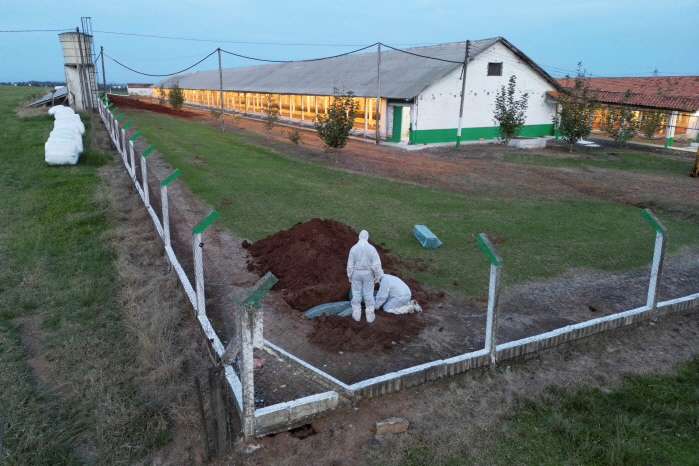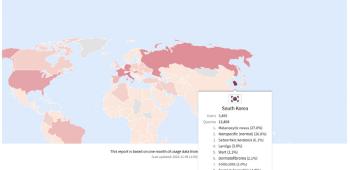The first outbreak of highly pathogenic avian influenza at a poultry facility in Brazil, the largest exporter of chicken meat...How to prevent human infection?
May 20, 2025
|
Brazil is a major poultry exporter, accounting for 14% of global chicken production, with exports worth $10 billion (worth 14 trillion won) last year, according to data from the U.S. Department of Agriculture.
Brazilian authorities say "HPAI has been identified at a commercial poultry breeding facility in Moncinegru, Rio Grande do Sul. Although they are not infected by chicken meat or egg consumption, they are implementing contingency plans to maintain the sector's production capacity, ensure supply, and maintain food security""We can rest assured of the safety of the products that have been inspected, and there are no restrictions on consumption" he said. Along with Santa Catarina and Parana states, Hiugrangidusul accounts for 60% of Brazil's total chicken production.
In this regard, major countries around the world have imposed a series of embargoes on Brazilian chicken. In particular, China, the country that imported the largest amount of Brazilian chicken as of 2014-2022, also decided to stop importing Brazilian poultry for 60 days.
The United States, which has significantly increased Brazilian egg imports since the end of last year due to the avian influenza epidemic, is also on alert. Brazil's egg exports to the U.S. increased by more than 1,000% from January to April this year compared to the same period last year, the Associated Press said. The United Arab Emirates (UAE) and Japan, which import hundreds of thousands of tons, are also reportedly taking follow-up measures, including a temporary suspension of imports.
Korea, which relies on Brazil for nearly 90% of its total imports in the frozen chicken market, is also in an emergency situation.
Meanwhile, highly pathogenic avian influenza causes high mortality, and rapid transmission occurs in infected poultry. It is classified as an internationally important livestock epidemic, and large-scale killing in the event of an outbreak is fundamental.
Avian influenza can also infest humans in rare cases, and is mainly transmitted through contact with infected birds. Common infection symptoms include coughing, shortness of breath, fever, and muscle pain, and in severe cases, can lead to pneumonia or death. For prevention, it is important to avoid contact with infected birds and to strictly observe personal hygiene. After going out, it is recommended to wash your hands with soap and water for at least 30 seconds and use hand sanitizer. Poultry and eggs should be fully cooked at an internal temperature of 75℃ or higher, and cooking utensils are recommended to be used separately to prevent cross-contamination.
This article was translated by Naver AI translator.














